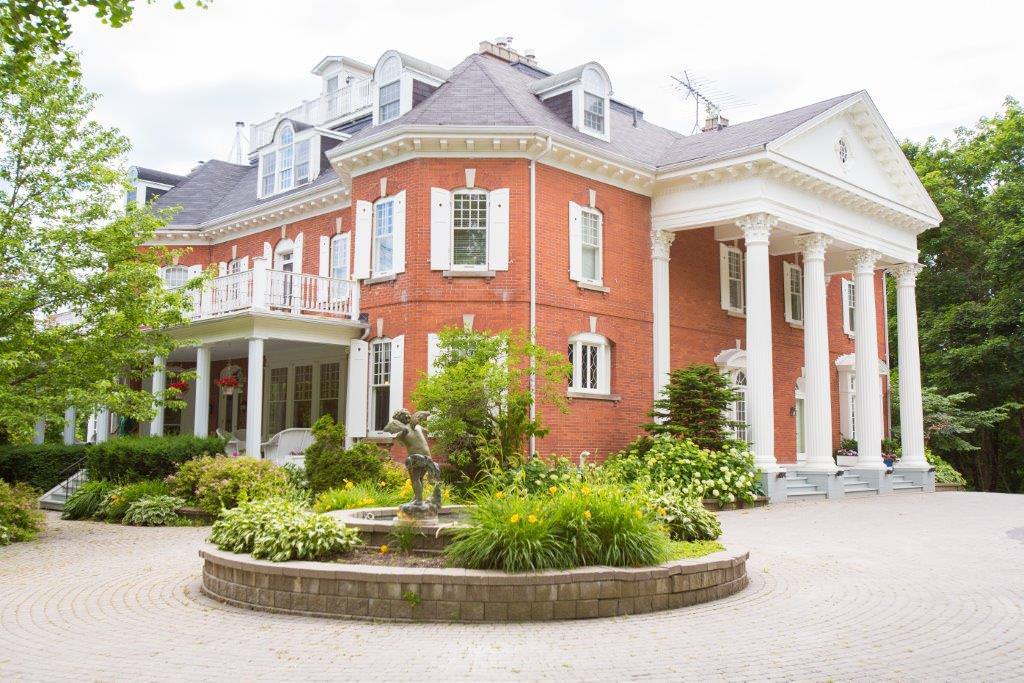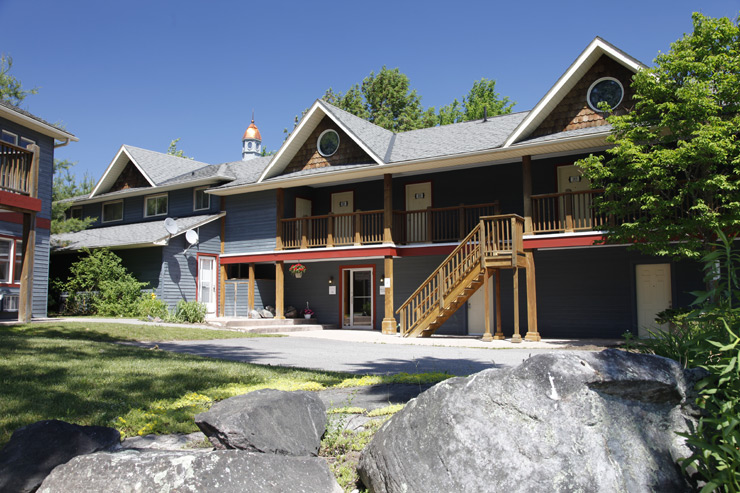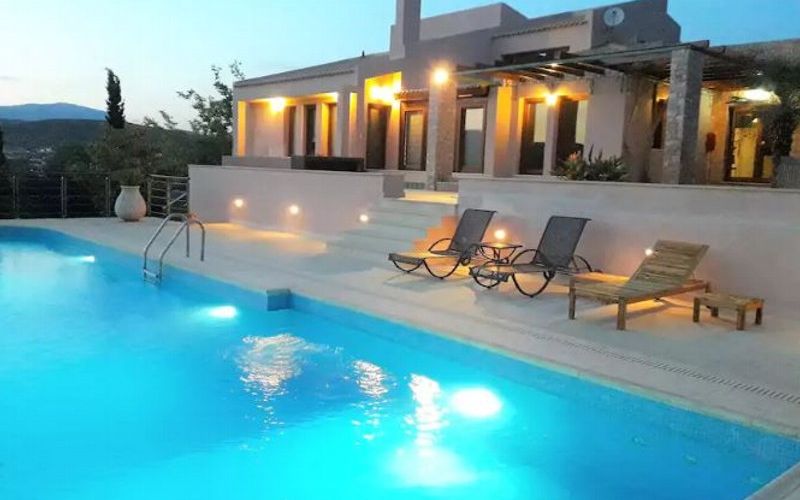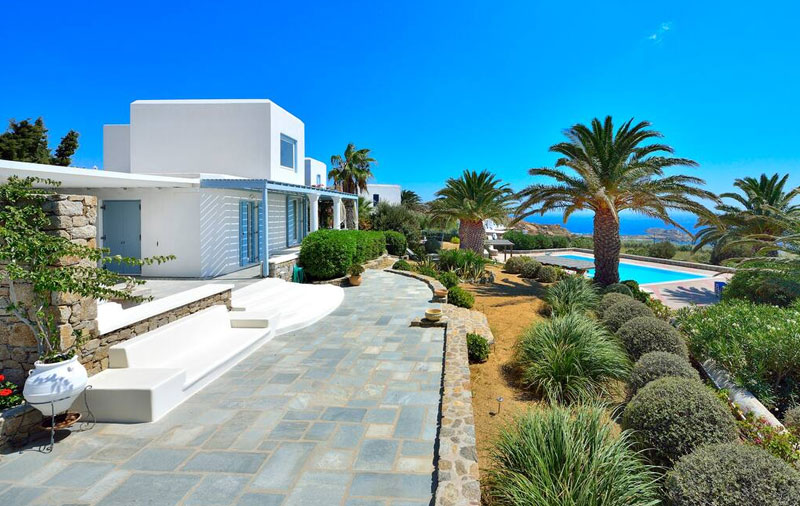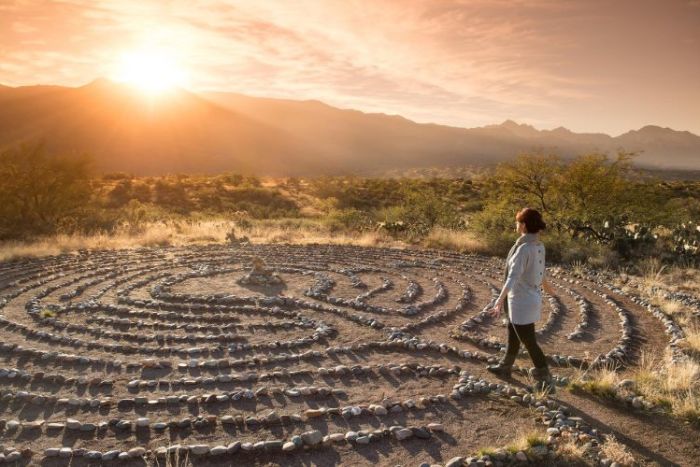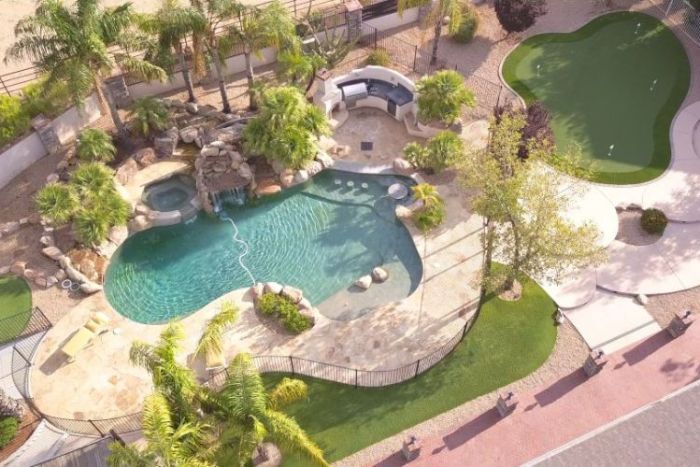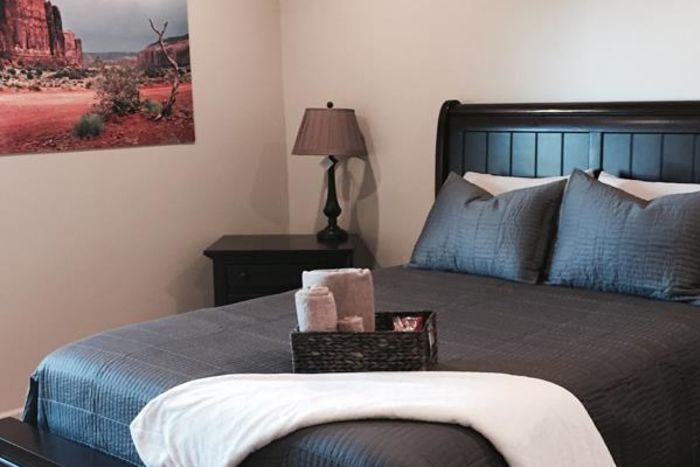Residential rehab lets you step away from your daily environment and fully focus on recovery. While everyone’s healing journey is unique, many people find that a change in their surroundings facilitates healing in impactful ways. For some, traveling abroad for rehab can be profound.
Traveling can change your mindset: immersion in a new culture may promote positive thinking and foster a sense of connection to others. Often, luxury rehabs abroad are located in tranquil environments designed to relieve tension and cultivate calm. And certain destinations offer special therapeutic activities that you might not find back home.
Steeped in rich history and famous for its fresh seafood, a relaxed approach to life, and pastel-colored buildings ornate with bright Azulejos tiles, Portugal is quickly becoming a sought-after rehab destination.
It’s not just the landscape and culture that draws people to addiction treatment in the country. Here, you can find unique therapeutic approaches, including ibogaine treatment. Influenced by their warm culture, many centers have a home-like atmosphere supported by inviting staff. This level of comfort is especially important if you’re tentative about going abroad for treatment.
We explore some top reasons why addiction treatment in Portugal is gaining traction.
1. A Temperate Climate and Tranquil Landscapes
Temperate Climate
Portugal has mild weather, which can be a welcome change for people living in colder or hotter climates. Winter temperatures stay at around 16 °C (or 61 °F). Come summer, the region enjoys warmth and sun without the sweltering heat. Some cities, like Lisbon and Porto, have 11 hours of sun during the summer months.
Temperate climates can be good for your mental health.1 Research on temperature and self-reported mental health conducted in the U.S. revealed that humans are most comfortable in 16 to 21° C (or 60 to 70 °F), and the probability of self-reported mental health struggles increases in both colder and warmer temperatures.
Beautiful, Therapeutic Landscapes
Voted the top country to visit2 by Condé Nast Traveller’s Readers’ Choice Awards 2021, Portugal’s natural landscape is nothing short of stunning. Stretches of mesmerizing coastline border the country’s west. Inland, you’ll find striking mountains in the north, peaceful rolling hills to the south, and charming cobblestone towns that dot the areas in between.
According to a study published in the American Medical Association’s JAMA Network Open Journal, this abundance of nature can aid addiction recovery3 in several ways:
- it restores cognitive capacity;
- it boosts recovery from psychosocial stress;
- and it can enhance optimism.
As society grows more distanced from nature,4 we’re increasingly disconnected from its therapeutic benefits. Rehab can provide an opportunity to restore this important link. A Health Place journal study found that exposure to natural environments may even reduce cravings.5
Many private rehabs in Portugal emphasize connection to nature by making the most of the country’s tranquil greenscapes. In the historic town of Quinta das Lapas, Dianova Addiction Recovery Centre sits on a 10-acre property surrounded by countryside. Residents live in a Portuguese-style home with lush baroque gardens nearby. The center takes a multidisciplinary approach to addiction recovery and highlights the importance of outdoor activities and their green surroundings.
2. Rich History and Warm Culture
Portugal is culturally vibrant, brimming with rich history. From Arabic-influenced Moorish castles to gothic-style monuments, each of its cobbled-street cities is picturesque in its own right.
Many rehabs in Portugal make use of their proximity to culturally significant locations. Dianova Addiction Recovery Centre offers guided tours of UNESCO World Heritage sites, like the breathtaking baroque and neoclassical palaces found in Quinta das Lapas.

If exploring new sites sounds inspiring, the good news is that it can also be good for you. Travel delivers mental health benefits7 which can support your recovery process. Psychologist, researcher, and author Dr. Todd B. Kashdan explains how travel can strengthen skills like emotional regulation: “exposure to foreign travel [is] linked to a greater ability to direct attention and energy, which helps us function effectively in diverse situations and display appropriate verbal and nonverbal signals of emotion… you become tolerant and even accepting of your own discomfort and more confident in your ability to navigate ambiguous situations.”
Attending rehab in another country can also foster deeper human connection6 and feelings of wholeness. It opens you up to new ways of communication. Portuguese culture is known as easygoing and friendly. This translates to what you’ll find at rehabs there, and many centers emphasize their cozy, home-like atmosphere.

Heritage Counseling Clinic, in the historic town of Sintra, has made the client-staff connection an integral part of their treatment program. “Everything was designed so that the relation between patients and staff can flow naturally, ensuring that [you] can experience rapid integration.”
Tabula Rasa Retreat, which offers ibogaine treatment in Portugal’s Alentejo region, highlights their family-style environment and supportive team as a core component of their holistic approach.
3. A Menu of Treatment Options
Several luxury rehabs in Portugal have holistic addiction treatment programs. These programs include a balance of psychotherapy, holistic therapies, experiential therapies, and more. We explore common therapies offered at centers in Portugal, plus treatment that isn’t yet available in the U.S.
Psychotherapy
Cognitive Behavioral Therapy (CBT)
CBT is one of the most common forms of evidence-based psychotherapy. It’s based on the idea that our thoughts, emotions, behavior, and physiology are interconnected. By changing our thought patterns, we have the power to change our emotions and behavior. Several empirical studies point to the efficacy of CBT,8 with some psychologists calling it the “gold standard of the psychotherapy field,” as published in the Front Psychology journal. Many rehabs offer CBT to help treat addiction and mental health issues like treatment-resistant depression and anxiety.
Group Therapy
Group therapy is led by 1 therapist – or a co-leader for bigger groups – and usually involves 5 or more participants, depending on the rehab’s intake numbers. This type of therapy allows for dynamic conversations and moments of reflection. The support network it offers often empowers people through their healing process. Simply knowing others are going through similar struggles can help you feel understood, activating parts of the brain associated with reward and social connection. These feelings could be amplified during group therapy abroad, when you see that people from different cultures share your struggle.
Family Therapy
Family is foundational to Portugal’s social structure. Several rehabs in the country offer family therapy. With the rise of telehealth for addiction treatment, it’s now more common for rehabs abroad to provide virtual sessions so family back home can participate. For some people, family inclusion is an important part of recovery. Family therapy can give you a better understanding of your unique family dynamics and interpersonal relationships. Substance abuse often impacts an entire family system – this form of psychotherapy is intended to help everyone involved heal. This can result in stronger family resilience and ties. The interpersonal skills you learn in family therapy can also be applied to other relationships in your life.
Holistic Therapies
Physical Activity
The significance of physical exercise for addiction treatment9 has been well documented: collective studies show that exercise can “reduce compulsive patterns of drug intake in clinical and at-risk populations.” You’ll often see some form of exercise included in most private rehab programs. With Portugal’s temperate weather and sunny summers, many rehab facilities offer outdoor physical activities when possible. Heritage Counseling Clinic’s program includes outdoor yoga and chi-kung. Meanwhile, Casa da Oliveira holds water activities in their outdoor pool during summer.
Art therapy
It’s not always easy to put your feelings into words. This is where art therapy can help. Art therapy offers several documented benefits for addiction recovery:10
- Decreased denial
- Lessened shame
- A communication outlet
- Less opposition to addiction treatment
When psychotherapy and art therapy are combined,10 they can work to promote each other’s goals.
Ibogaine Treatment
Ibogaine-assisted therapy is a type of alternative treatment usually delivered in a short-term residential facility. It involves administering ibogaine, a naturally occurring psychoactive alkaloid extracted from the iboga shrub native to West Africa. In small doses, it acts as a mild stimulant. In larger doses, ibogaine induces a dream-like state. This experience, when overseen by treatment professionals, serves as a potentially effective therapy for substance use disorder or other mental health diagnoses, like depression.
Research on ibogaine-assisted therapy for addiction treatment has been promising. The Multidisciplinary Association for Psychedelic Studies (MAPS) observed the long-term effectiveness of ibogaine11 and found that “a single ibogaine treatment reduced opioid withdrawal symptoms and achieved opioid cessation or reduced use across the one year study.”
Ibogaine has also been shown to reduce drug cravings12 for people suffering from opioid and cocaine addiction.
While ibogaine-assisted therapy isn’t yet available in the U.S., you can travel abroad for treatment. Countries like Mexico and Portugal have addiction treatment centers with ibogaine therapy. Tabula Rasa Retreat in the Alentejo Region of Portugal offers this therapy as part of their holistic approach to treatment. There, ibogaine therapy is administered in a monitored, safe environment by experienced medical professionals and is supported with complementary therapies like breathwork, massage, meditation, and more.
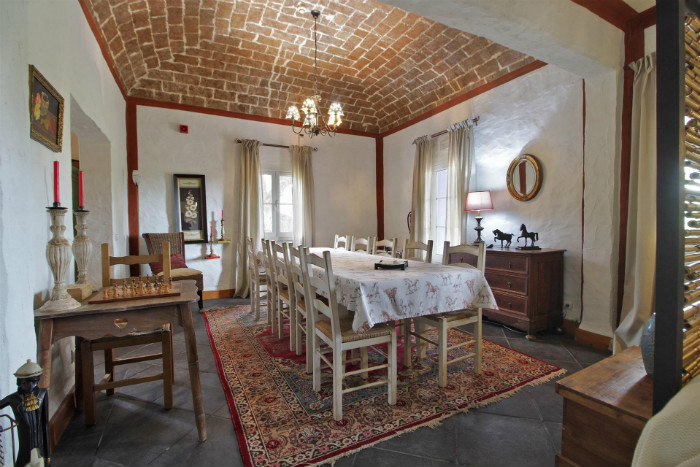
4. An Abundance of Activities
Portugal’s temperate weather allows for outdoor experiential therapies and activities year-round, like equine therapy, rappelling, and sightseeing. Experiential activities teach you new skills and can show you it’s possible to find joy in other interests. You may even discover lasting hobbies in the process.
Equine therapy
Equine-assisted therapy involves therapeutic work with horses, led by a professional guide or therapist, to help treat addiction and mental health disorders. It’s offered at several treatment centers in Portugal including Tabula Rasa Retreat in the Alentejo Region, Heritage Counseling Clinic in Sintra, and Dianova Addiction Recovery Centre in Monte Redondo.
Rappelling
Portugal’s unique landscape is dotted with mesmerizing, tall cliffs, lending itself well to activities like rappelling. Rappelling is a form of therapeutic climbing (TC) where you descend the face of a rock in a harness with a fastened rope to help guide you down. Some mental health benefits of therapeutic climbing13 (TC) include reduced symptoms of depression and improved psychological well-being. At Heritage Counseling Clinic, rappelling is combined with a unique cultural experience: the rappel site offers views of some of Portugal’s most well-known heritage castles.
Sightseeing
Standing among century-old structures and heritage sites is linked with mental wellness,14 including improved mood and a deeper sense of citizenship among groups of people that share commonalities. The good news is, there’s no shortage of sightseeing in history-rich Portugal. At some rehabs, like Dianova Addiction Recovery Centre, you’re taken on guided tours of UNESCO Heritage palaces. For many people, addiction is isolating. These kinds of cultural experiences may foster a deeper sense of connection with the world, and other people, around you.

5. Accessible and Easy to Get Around
Portugal has 3 international airports in Lisbon, Faro, and Porto, and 4 smaller airports for domestic travel. A majority of U.S. airports have flights to Lisbon, with direct flights from some of the U.S.’s biggest international airports. Almost every major European city offers direct flights to Lisbon too.
Many rehabs offer airport pick-up services once you’ve landed in Portugal. While getting around the country is easy, with a well-functioning metro system and rideshare apps like Uber, it may be too overwhelming to navigate travel in the midst of early recovery. It’s recommended to speak with your rehab’s admissions team and arrange to have someone guide you to the center once you’ve landed.
Embark On Your Recovery Journey in Portugal
Attending rehab in a different country can help you gain a new perspective on life. This can be incredibly impactful to someone’s recovery journey. It shows you a different way of living, which may help you feel more connected to others and the world around you. With so much history and heritage, Portugal isn’t just an awe-inspiring place to find recovery: it can help inspire powerful connections and feelings of wholeness.
To learn more about addiction and mental health treatment in the country, browse our list of luxury rehabs in Portugal.
Frequently Asked Questions About Rehab in Portugal
How much does luxury rehab in Portugal typically cost?
Luxury rehab in Portugal typically costs under $10,000 up to $25,000 for a 30-day program without insurance. Cost can vary depending on factors like the duration of the program, level of personalized care, and amenities offered. It’s best to contact the individual luxury rehab centers in Portugal for accurate pricing information tailored to your needs.
What amenities can I expect at a luxury rehab in Portugal?
Luxury rehabs in Portugal offer a range of amenities:
• Luxurious, private accommodations
• Gourmet dining
• Spa and wellness facilities
• Pool
• Recreational activities
What types of therapies are available at luxury rehabs in Portugal?
Luxury rehabs in Portugal provide a combination of evidence-based and holistic therapies. These may include individual counseling, group therapy, adventure outings, equine therapy, rappelling, historical site visits, and more.



